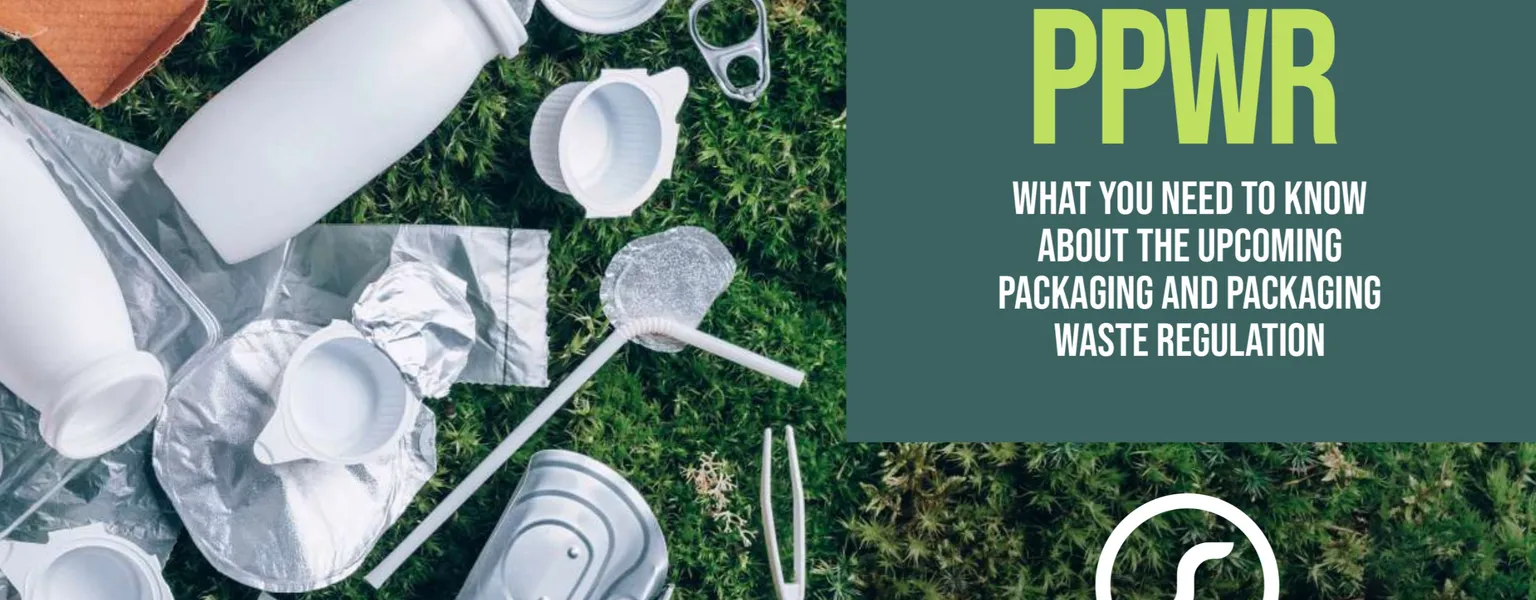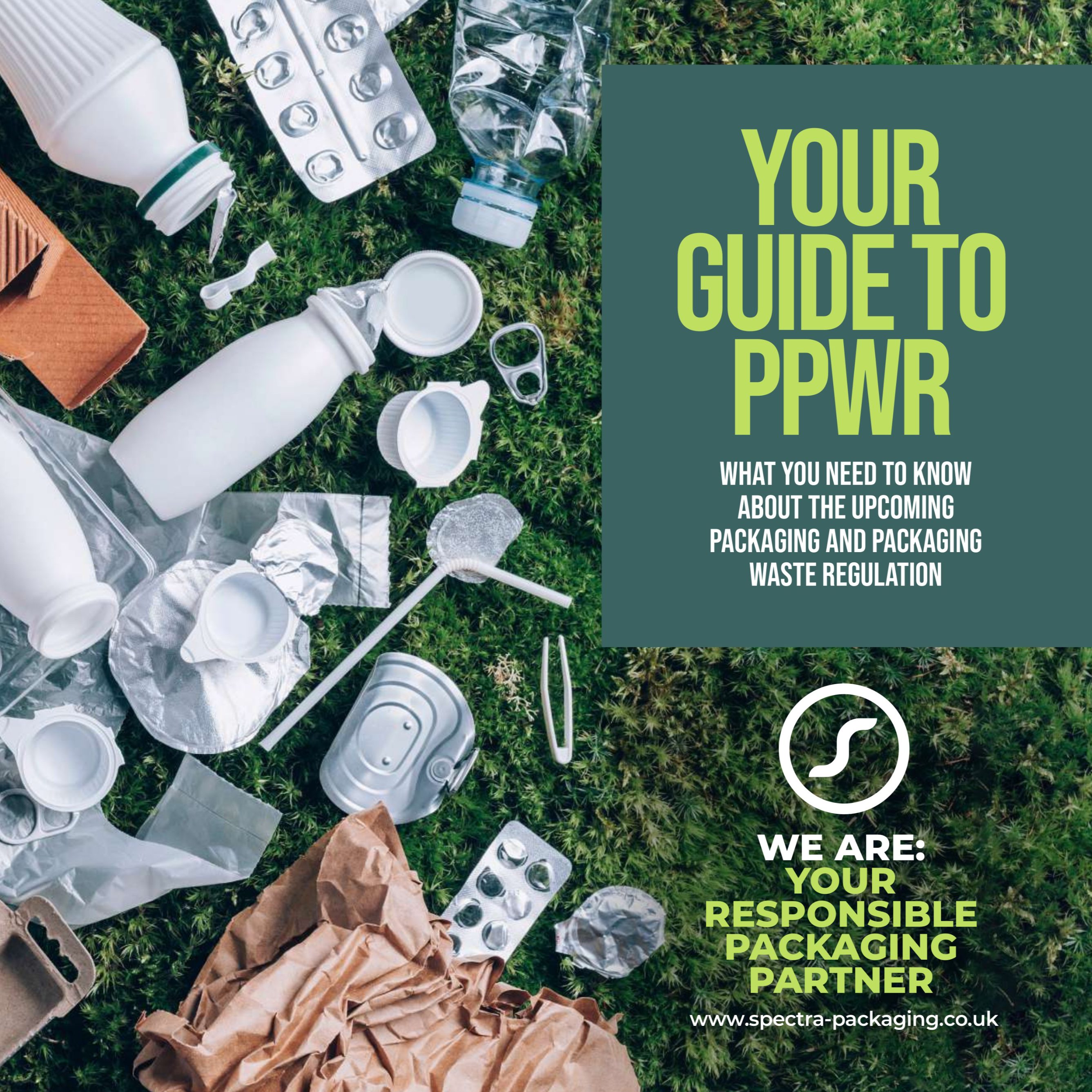Spectra Packaging: Navigating PPWR – What you need to know

Supplier News
While the UK is no longer part of the EU, the European Union's Packaging and Packaging Waste Regulation (PPWR) is likely to extend beyond its borders, impacting global sustainability standards and consumer expectations in the future.
Here we look at what is currently known about the new legislation to help you navigate this new regulatory landscape.
Expected to be finalised in late 2024, PPWR introduces a sweeping set of rules designed to minimise the environmental impact of packaging. This regulation aims to reduce packaging waste, promote recycling and encourage the use of recycled content in packaging materials. In simple terms, it’s a comprehensive approach to transitioning towards a circular economy for packaging.
By 2030, a 5% reduction is mandated, increasing to 10% by 2035 and 15% by 2040. These targets are measured against 2018 waste generation levels, emphasising the need for significant and sustained efforts. All packaging placed on the EU market must be recyclable by 2030.
Similarly, by 2035, this packaging must also be “recycled at scale,” meaning it can be effectively collected, sorted and recycled at a high rate. This will no doubt necessitate a fundamental shift in packaging design, moving away from complex, multi-material packaging that often hinders recycling.
To ensure compliance, the PPWR will introduce a grading system (A-C) to evaluate packaging recyclability. By 2030, only packaging achieving a recyclability grade of A or B (70% or higher) will be permitted in the EU market. By 2038, this threshold will rise to 80% or higher, further pushing the industry toward highly recyclable solutions.
The PPWR mandates the inclusion of recycled content in plastic packaging. The specific targets vary depending on the type of packaging and its intended use, for example:
- 30% PCR by 2030 and 50% by 2040 for PET contact-sensitive packaging (e.g., food and personal care packaging)
- 10% PCR by 2030, 25% by 2040 for non-PET contact-sensitive packaging
- 35% PCR by 2030 and 65% by 2040 for all other plastic packaging:
The PPWR will also introduce EPR fees, requiring producers to bear the financial responsibility for managing packaging waste generated by their products. This aims to incentivise producers to adopt eco-friendly packaging designs that are easier to recycle and incorporate recycled content. These fees will be modulated based on the packaging’s recyclability grade and recycled content proportion, encouraging a shift toward more sustainable practices. Indeed, the PPWR seeks to reduce excessive packaging. This involves minimising packaging weight and volume, and limiting unnecessary empty space, particularly in grouped, transport and e-commerce packaging.
While the PPWR’s initial mandatory reuse and refill targets primarily focus on beverage packaging, they signal a broader shift toward circularity and could extend to personal care products in the future.
EU member states are required to establish deposit return systems for beverage cans and plastic bottles, aiming to achieve a 90% collection for recycling target by 2029. By 2030, companies using transport and sales packaging within the EU will need to ensure at least 40% of their packaging, such as pallets, crates, and containers, is reusable. Although primarily targeting other sectors, the PPWR’s ban on certain single-use packaging formats reflects a growing commitment to reducing waste and promoting sustainable alternatives. These bans encompass plastic packaging for fresh fruits and vegetables, single-use food and beverage packaging in hotels and restaurants, and small hotel packaging for cosmetic and hygiene items.
It’s evident that the PPWR is an evolving regulation, which is why Spectra will continue to provide expert guidance to ensure as much clarity as possible at every opportunity. We believe by proactively addressing the new legislation, brands will be able to position themselves for success in a future where sustainability is paramount.
If you would like more help or advice, get in touch via the contact form. In the meantime, we will keep you updated as and when more details become available.

For more information, view our useful “PPWR Guide” document here.
This article was originally published by Spectra Packaging.
Related News
-
Supplier News
Enzo London Skin turns to Spectra for a premium recycled solution
-
Supplier News
Spectra set to shine at Packaging Innovations 2026
-
Supplier News
Spectra produce invaluable guide to UK’s EPR and RAM
-
Supplier News
Spectra supports AMELIORATE’s extensive rebrand with 17-bottle HDPE range
-
Supplier News
Spectra helps Tiiglu® launch sustainable kids’ body & hair care range





